Greetings to any loyal readers who still remain! It’s been over a year and a half since my last entry on The Rumpus Room, and you could be forgiven for thinking I just wasn’t writing about games anymore. But you would be wrong! I still contribute to Fortress: Ameritrash, or as you might know it now, There Will Be Games. I publish a new article every two months, but I’ve also been regularly blogging a series called Why Do I Own This?, where I am reviewing every game in my collection, five at a time. Continue reading
Doctor Who: Time of the Daleks in Review

Over the last five years or so, Gale Force 9 as established themselves as the premier design house for licensed properties. From huge nerd fandoms like Star Trek and Firefly, to somewhat more niche licenses like Homeland and Spartacus, the good folks at GF9 have shown themselves more than capable of creating games that reflect the feel and themes of those properties with uncanny accuracy. That’s what made me so excited when GF9 landed the license to Doctor Who back in 2015. If anyone could make the hit BBC property work in board game form, it was these people. A good Doctor Who game has been something of a white whale for gamers, so the excitement was palpable. Then came the waiting. Continue reading
Life After Collecting
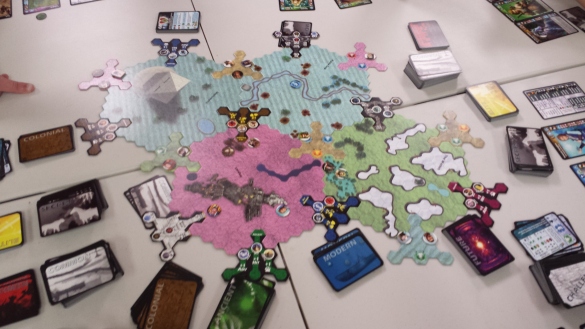
I won’t be getting rid of Duel of Ages II anytime soon.
For years now I’ve tried to keep my game collection lean and mean. That meant I worked to move out games I only kind of liked, so that I could maybe flip them for games I would like even more. In lean financial times, such games served as a sort of currency. But beyond the desire for something new, under-played games gnaw at the corners of my mind, and I wanted to make sure I had a collection that was as close to sheer awesomeness as I could get it. But the name of the game has changed dramatically for me in recent months. After a year of pastoral ministry my family has accepted a missionary assignment to Asia, and we’ll be moving to the Philippines in the early part of Spring 2018. Continue reading
Sing, O Muse – Bemused in Review
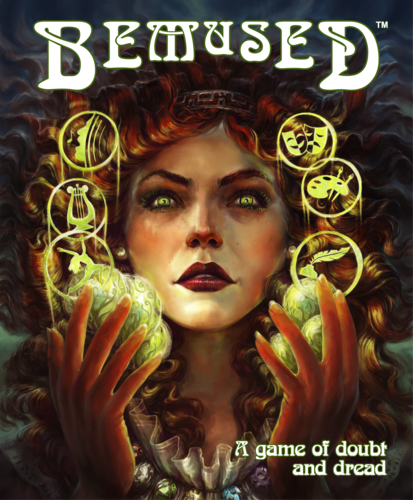
The games of Jim Felli present a particular challenge to the game reviewer. We see a lot of different games cover the same basic ideas ad infinitum, so when a designer like Felli comes along, whose three designs have all been strange beasts, it’s easy to latch onto their uniqueness while ignoring some of their shaggier elements. Both of Felli’s previous games, Shadows of Malice and Zimby Mojo, were striking experiences, and I stand by my rapturous reviews of both. But I also admit that they won’t work for everyone. They were long games with lots of little rules that were easy to forget. More than that, they really require the player to meet the game where it already is. If you can’t deal with dicey abstract storytelling of Shadows of Malice, or the chaotic strategy of Zimby Mojo, both games offer very little for you. Continue reading
Argent: The Consortium in Review
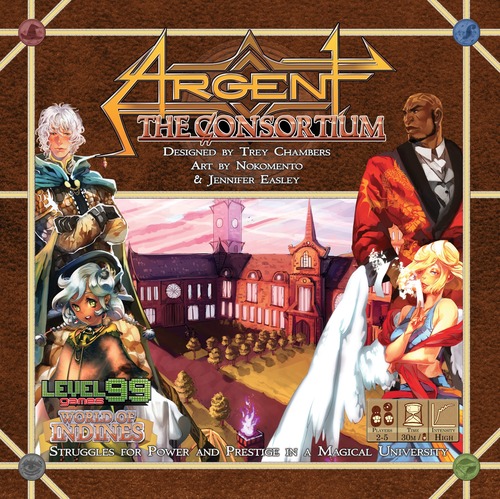
It is always surprising to find a game that redefines a genre. Until a year or so ago I had assumed that worker placement, as a mechanic, was about as played out as it could be. It’s a genre I happen to enjoy, but it was the sort of thing where you could find your favorite and stick with it, knowing that new games probably won’t change your opinion that much. But it was about a year ago that I played Argent: The Consortium for the first time, and it has forced me to rethink everything I thought I knew about worker placement. It represents the biggest leap forward in that genre since Agricola, as well as a new high watermark in Euro-style game design. Continue reading
Reassessing Puerto Rico
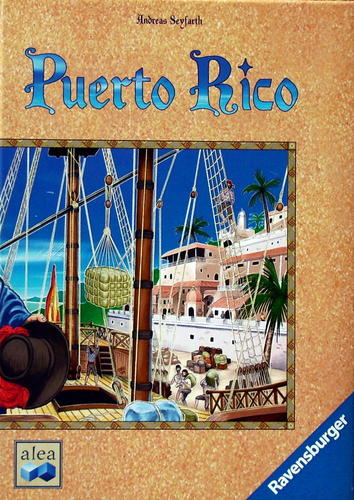
There was a time when Puerto Rico was the undisputed king of hobby board gaming. Roughly ten years ago, there was no design so well-loved and analyzed by board gamers. One of those fans was myself. Puerto Rico was among the first hobby games I purchased, and I played it many times with my friends. We learned about the strategies and grappled with the circuitous mechanics that make the game so interesting. But something happened after a couple of years: I discovered my love for more high-luck, high-narrative games. The chess-like structure of Andreas Seyfarth’s classic design didn’t hold as much interest for me, and I traded it away without looking back. Continue reading
Wheels Within Wheels
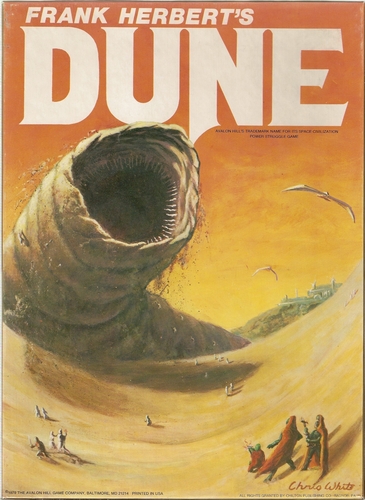
Unlike a lot of other pillars of nerd culture, Frank Herbert’s classic novel Dune is still waiting for its perfect adaptation. The 1984 David Lynch film is slog with amazing art direction, and the Sci-Fi channel miniseries reduced the scope of the novel lower than it could really bear. But if we expand the search to include other media, Dune has received two of the most important games of the last forty years. Westwood Studios’ Dune II: The Building of a Dynasty essentially codified real-time strategy games in the video game world. But Dune’s greatest adaptation might just be Dune the board game, published by Avalon Hill in 1979. Continue reading
Scythe – First Impressions
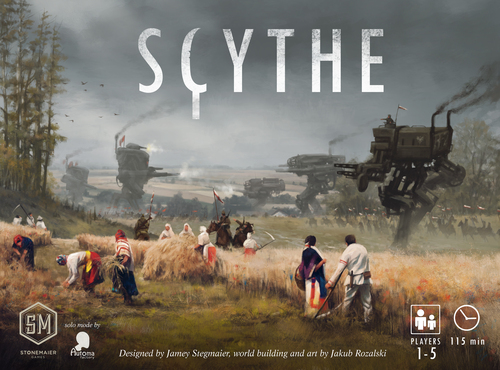
I’m usually a little sluggish to check out new games, which is a strange quality for someone who reviews them. Mostly I like being able to assess them apart from the inevitable flurry of enthusiasm that accompanies popular new releases. When there are so many new games to play, waiting six months or so can be useful, just to see what is still being played at that point. But this weekend I had the opportunity to play Scythe, and in this case at least I see why people are so enthusiastic about it. I enjoyed it quite a bit. Continue reading
Serious Partying
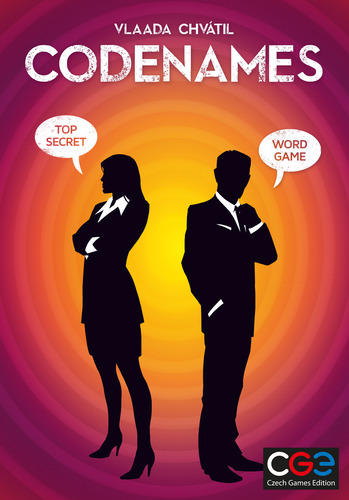
I wouldn’t call Codenames the best game I’ve played in the past couple years, but it’s probably one of my most-played. This is partially due to its length, short enough that almost no one plays just one game, and its flexibility with player numbers. It handles ten people as well as it handles four. I’ve even gone higher than that, and it’s been fine (your results my be different). But probably the biggest factor has been that it can be pulled out with just about any group at all, regardless of experience level. These days I bring it to just about any gathering where games might be played. If people have played it before, they’ll probably play it again. If no one has heard of it, it almost always ends up with someone asking me where they can buy a copy. It’s cheap too, so people don’t balk at the price like they do with most hobby games. Continue reading
An Emergency Buyer’s Guide to Talisman

Now that Talisman is going out of print due to Fantasy Flight’s loss of the Games Workshop license, players are already snatching up copies of the fourteen expansions. This makes the choice to put together a buyer’s guide a somewhat strange one, since FFG won’t be offering these titles at all after February 2017. Continue reading